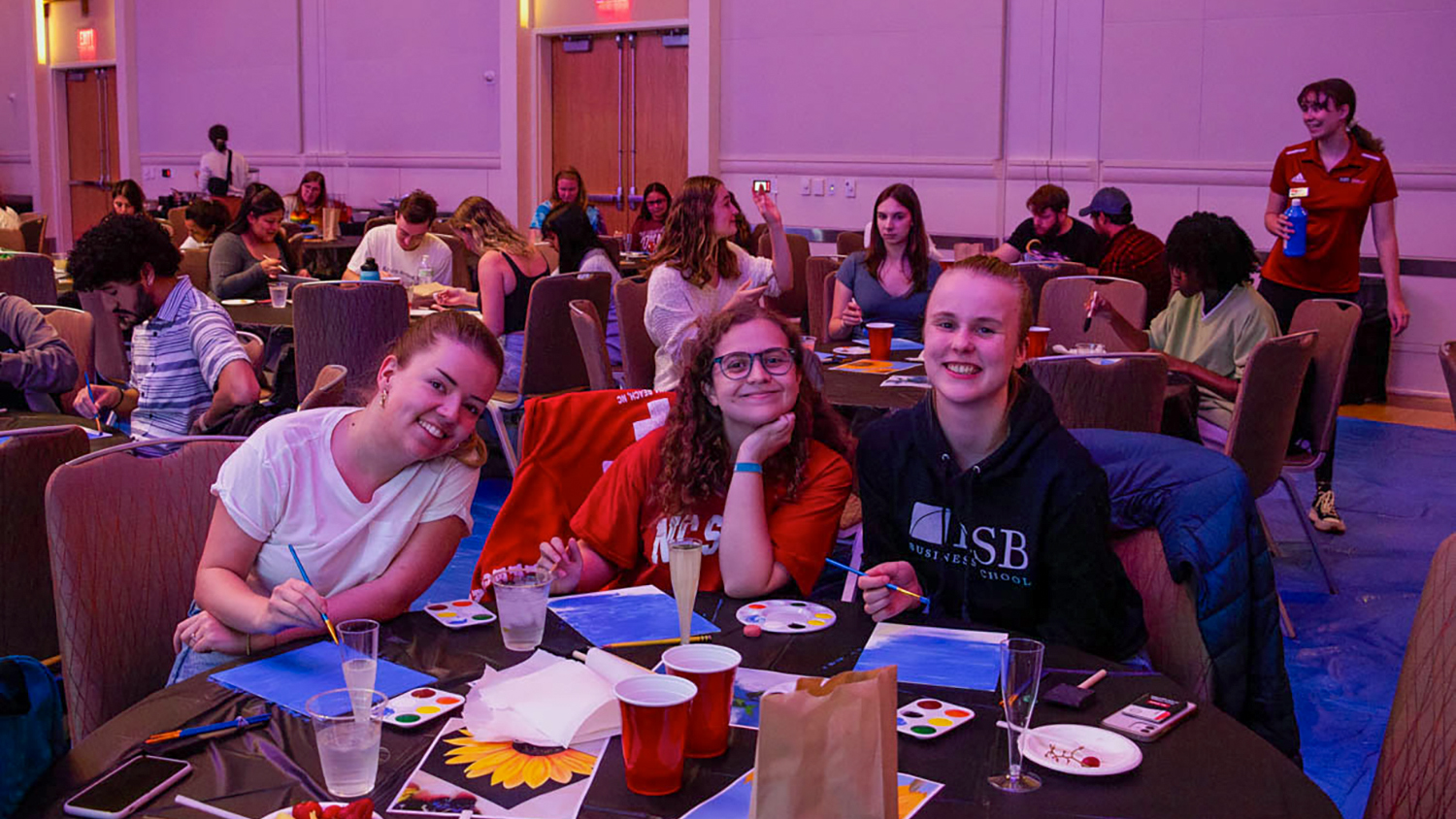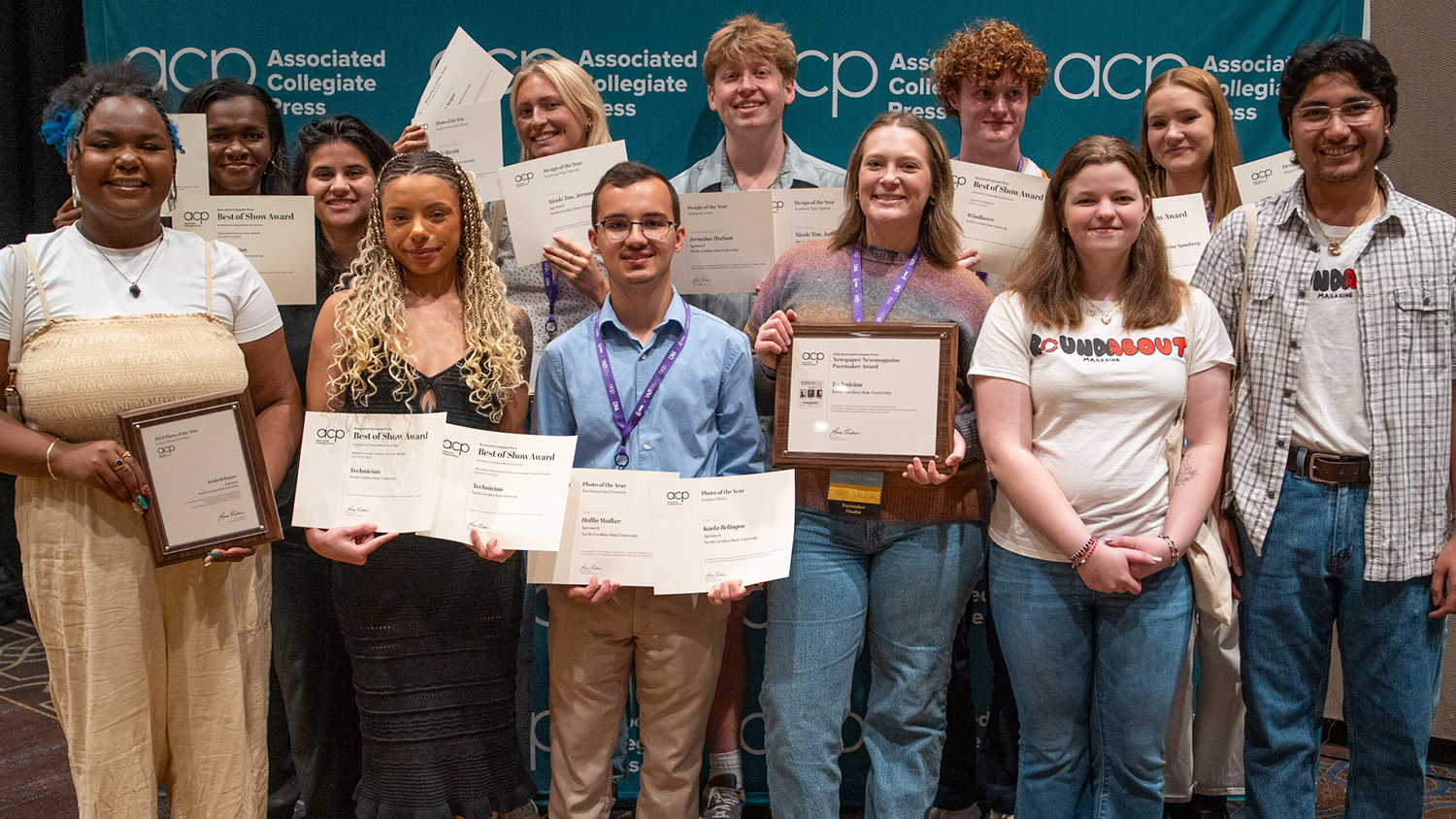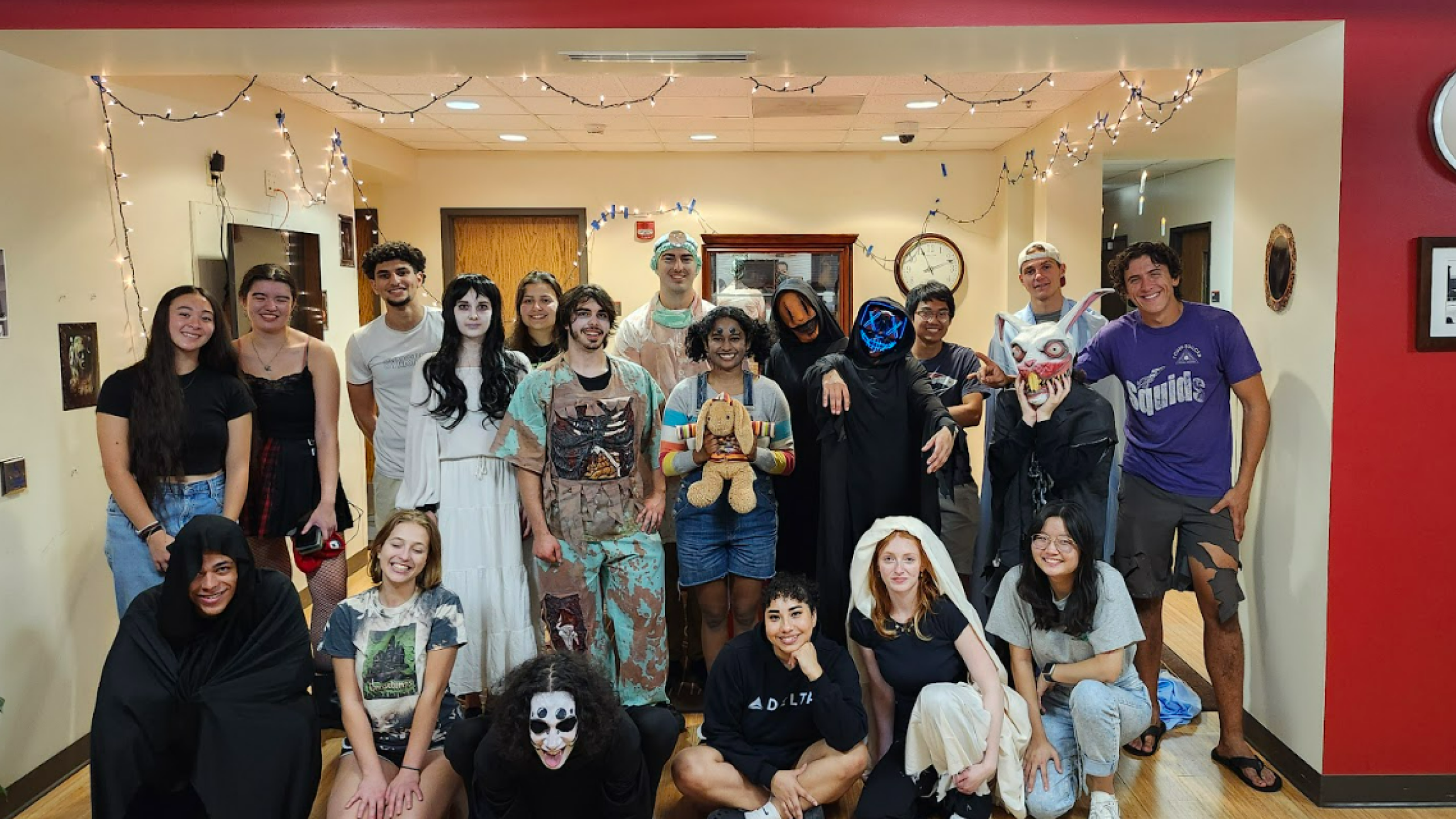Spotlight on Our Students: Singapore – Research, Communication, and Culture
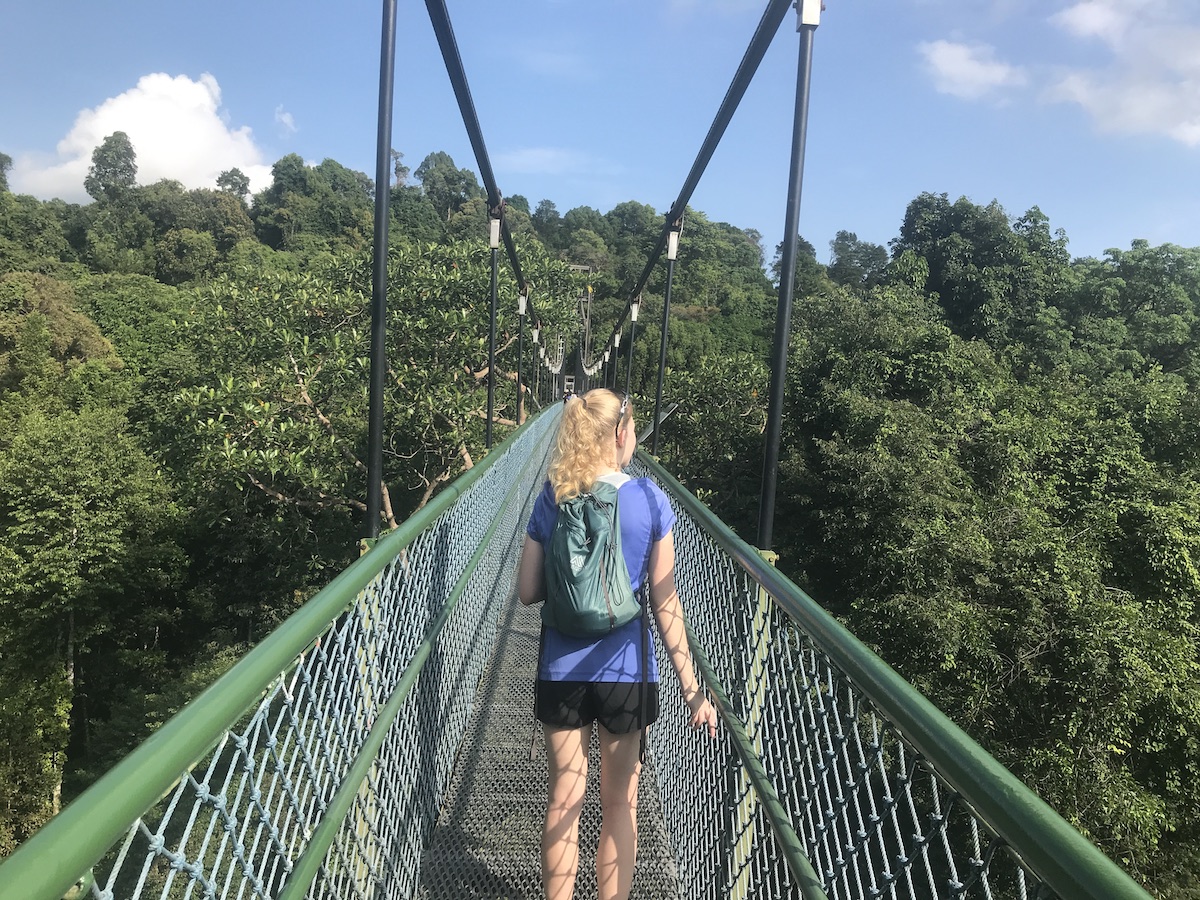
In this edition of Spotlight on our Students, we checked in with Katie Ryan about her research experience at an NSF funded research experience in Singapore.
Katie is a rising senior University Honors student from Wake Forest, North Carolina, double-majoring in Chemical Engineering and Biochemistry. Read on to learn more about her time in Singapore and how she got involved with this fascinating research opportunity.
UHP: Hey Katie, thanks so much for taking the time to talk with us about this experience. It sounds super unique. Can you tell us, for starters, what sparked your interest in this summer experience and what exactly does it entail?
KR: The program I’m doing is called IRES Singapore. It is an NSF funded research experience that involves a week-long orientation at Michigan Technological University followed by eight weeks working on a research project at the National University of Singapore. My project involves optimizing production and purification of a virus-like-particle in hopes of eventually making a vaccine candidate for HFM disease. I was interested in this program for three reasons. First, the research projects are highly interdisciplinary, involving students and faculty from different specialties in engineering and the sciences. Second, there is a science communication aspect to the program (namely contributing to social media platforms, an article, and a short documentary). Finally, it involves experiencing a new culture, both during work and daily life. This is not only exciting but, in my opinion, a great catalyst for personal and professional growth.
UHP: This sounds like you will have innumerable learning opportunities, both about yourself and your chosen field of research. What is one thing you’re hoping to learn during your time there?
KR: I hope to learn more about how research is conducted and viewed in different countries. I also hope to learn more about Asian culture and history; Singapore is a nice place to start because it is a relatively new city and very multicultural with people coming from many different surrounding countries. It’s really exciting to learn completely different things from each of the locals I talk to.
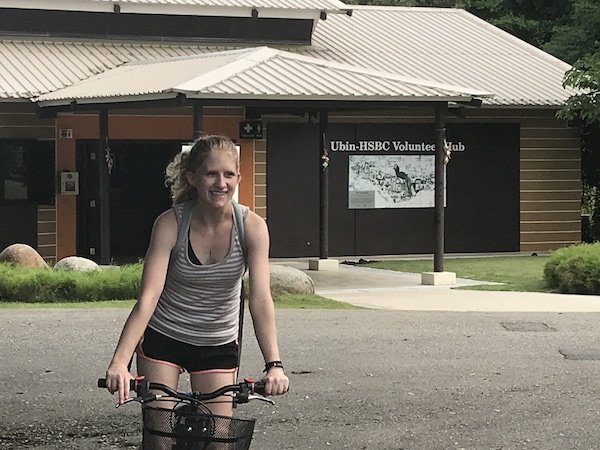
UHP: Yes – I’m sure that each encounter with locals is a chance to learn something new. Good for you. Regarding the research you’re doing, what is the most interesting thing you’ve done so far on this project? What has been the most challenging? Why?
KR: There are so many interesting things I’ve experienced so far! Food, flora, and fauna have been the highlights of my travel experience. As for the project, I participated in workshops on photography and social media. I never thought I would do such things as a scientific researcher. The most challenging aspect so far has been getting the lab work rolling. The downside of researching at different institutions is the time it takes to set up; however, undergoing the process of set up is a valuable experience in itself.
UHP: So you’re getting a feel for the timelines that big research projects work on. That’s very valuable and puts things into perspective I bet. What is the most valuable thing you’ve learned there so far?
KR: The most valuable thing I’ve taken from this experience so far is an appreciation for the commonality and kindness of humanity. Even though I’ve participated in intensive experiences like this in the past, it can still become overwhelming at times. Yet, I see that even on the other side of the planet, people are more similar than different. They are often incredibly kind even despite communication difficulties. As I’ve been told, a smile means the same thing in every culture.
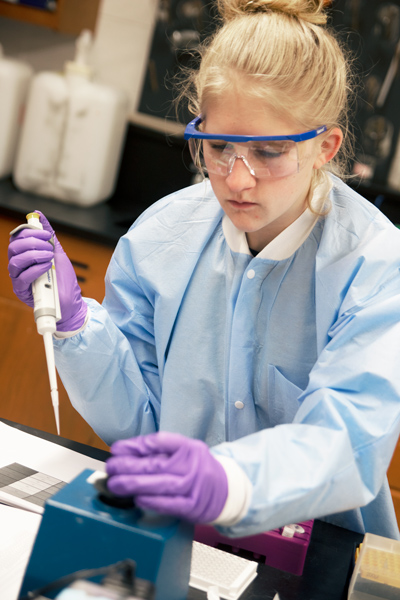
UHP: Those cross-cultural interactions really transcend the research and show you that at the end of the day, we’re all working toward a common good. I love that. How has your time in the University Honors Program prepared you for this experience?
KR: My time in the UHP has prepared me for the interdisciplinary aspect of this program. Having discussions during seminars or events with people who all speak a different “language” due to their different backgrounds and majors has allowed me to practice starting at basics when collaborating on a project. While this seems like a strenuous effort, the conversations that come out of those interactions have always been well worth it.
UHP: You’re right, having practice in creating dialogue across disciplinary boundaries is crucial to success in almost any field you pursue. What would you tell other students about how to prepare for experiences like this?
KR: I would first tell people to put effort into finding and applying for experiences like this. I found this program at the bottom of a pile of emails and applied despite feeling like I had little chance of being accepted. Now, I’m being paid to gain invaluable experience and travel. After being accepted to a program, I would remind people to manage their expectations. One summer is a short period of time, and you don’t have to accomplish everything for it to be a successful experience.
UHP: That’s pretty good advice for your peers. What’s the best bit of advice you’ve ever received?
KR: That’s a hard question to answer, but perhaps to treat everything as an opportunity. With this perspective, we can see benefits within challenges, and we can avoid becoming complacent during the apparently easy times. For me, thinking about this advice reminds me to stay observant, compassionate, and motivated.
UHP: That’s a great perspective to have on things, that way you’re always ready when opportunities present themselves. Katie, thanks again for taking the time to share your experiences with us. We are looking forward to hearing more about it upon your return in the fall.
